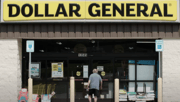Before you pack your bags: 7 essential checks for travelers headed south
By
Veronica E.
- Replies 0
Just 90 miles from Florida lies one of the Caribbean’s most vibrant destinations.
Known for its classic cars, rich music, and colorful streets, it’s long been a dream getaway for many Americans.
But before you book that flight and pack your summer clothes, the US government is urging travelers to take extra precautions.
This destination remains a place of deep cultural beauty, but recent conditions mean visiting safely requires more preparation than usual.
Here’s what you need to know before heading to this island paradise.

The US Department of State has extended a Level 2 travel advisory, encouraging Americans to “exercise increased caution.”
That doesn’t mean you shouldn’t go—but it does mean there are risks that travelers should seriously consider.
Here’s a look at what’s driving the advisory—and how to plan wisely.
The destination is generally considered safer than many others, but petty theft remains a concern, especially in popular tourist zones.
Pickpocketing, purse snatching, and car break-ins are not uncommon.
Thieves often target visitors who appear distracted or are displaying expensive items like jewelry or smartphones.
Since late 2024, rolling blackouts have affected cities and rural areas alike.
Some outages last 12 hours or longer.
While some hotels have generators, limited fuel means they aren’t always dependable.
Due to a combination of economic hardship and trade restrictions, the country is experiencing shortages of basic necessities—including food, bottled water, fuel, and medication.
Travelers should expect delays, limited selection, and bring certain essentials with them.
Ongoing disagreements between the US and this island nation include human rights concerns and trade barriers.
The country remains on the US list of state sponsors of terrorism.
While political tensions don’t typically involve tourists, they contribute to instability.
Americans are still not allowed to travel here for simple tourism.
Visits must fall into one of several legal categories—such as family visits, educational exchanges, or humanitarian work.
Be sure your plans meet the current rules before traveling.
Even though this country is known for its healthcare system, hospitals and pharmacies are short on supplies.
If you have health needs or take daily medication, bring enough for your full trip—and a little extra in case of delays.
This region is prone to hurricanes, particularly between June and November.
Combined with outdated roads and drainage systems, storms can quickly cause major travel disruptions.
Be sure to have a backup plan.
This destination has faced economic and political strain for decades, with ongoing trade restrictions and internal policies contributing to shortages and instability.
Recent global challenges have made things worse.
Tensions with the US continue to impact travel, trade, and daily life on the island.
This isn't the only location under a travel advisory.
The US has also issued a Level 3 “reconsider travel” warning for Trinidad and Tobago, citing violent crime including robberies, gang activity, and kidnappings.
Government employees are currently barred from traveling to certain areas of the country.
No matter where you travel, a little preparation goes a long way. Here are a few simple safety steps:
Read next: Lawmakers propose $15B for air travel upgrades—some drivers could face new annual fees

If you’ve visited this part of the Caribbean recently, what was your experience? Do you have any advice for fellow travelers or tips to share? Let us know in the comments—your insights could help others plan safer and more enjoyable trips.
Known for its classic cars, rich music, and colorful streets, it’s long been a dream getaway for many Americans.
But before you book that flight and pack your summer clothes, the US government is urging travelers to take extra precautions.
This destination remains a place of deep cultural beauty, but recent conditions mean visiting safely requires more preparation than usual.
Here’s what you need to know before heading to this island paradise.

Travelers are being urged to plan carefully as new advisories highlight safety and supply concerns in some popular Caribbean destinations. Image Source: Pexels / Nataliya Vaitkevich.
Why travelers are being warned to use caution
The US Department of State has extended a Level 2 travel advisory, encouraging Americans to “exercise increased caution.”
That doesn’t mean you shouldn’t go—but it does mean there are risks that travelers should seriously consider.
Here’s a look at what’s driving the advisory—and how to plan wisely.
1. Petty crime in tourist areas
The destination is generally considered safer than many others, but petty theft remains a concern, especially in popular tourist zones.
Pickpocketing, purse snatching, and car break-ins are not uncommon.
Thieves often target visitors who appear distracted or are displaying expensive items like jewelry or smartphones.
2. Ongoing power outages
Since late 2024, rolling blackouts have affected cities and rural areas alike.
Some outages last 12 hours or longer.
While some hotels have generators, limited fuel means they aren’t always dependable.
3. Shortages of essentials
Due to a combination of economic hardship and trade restrictions, the country is experiencing shortages of basic necessities—including food, bottled water, fuel, and medication.
Travelers should expect delays, limited selection, and bring certain essentials with them.
Also read: Travelers take note: Why New York's latest health alert may change your travel plans
4. Political tensions and restrictions
Ongoing disagreements between the US and this island nation include human rights concerns and trade barriers.
The country remains on the US list of state sponsors of terrorism.
While political tensions don’t typically involve tourists, they contribute to instability.
5. Travel rules for Americans
Americans are still not allowed to travel here for simple tourism.
Visits must fall into one of several legal categories—such as family visits, educational exchanges, or humanitarian work.
Be sure your plans meet the current rules before traveling.
6. Limited medical access
Even though this country is known for its healthcare system, hospitals and pharmacies are short on supplies.
If you have health needs or take daily medication, bring enough for your full trip—and a little extra in case of delays.
7. Weather and aging infrastructure
This region is prone to hurricanes, particularly between June and November.
Combined with outdated roads and drainage systems, storms can quickly cause major travel disruptions.
Be sure to have a backup plan.
Also read: Travel nightmare: Lost or stolen license? You never know when this might happen.
Pre-trip checklist: 7 ways to stay safe
- Stay alert, especially in public or crowded places
- Don’t resist robbery—your safety matters most
- Keep valuables out of sight and skip the flashy accessories
- Keep your phone and power banks fully charged
- Pack a flashlight and spare batteries
- Bring nonperishable snacks and bottled water
- Carry all necessary medications and a basic first-aid kit
Why these issues exist
This destination has faced economic and political strain for decades, with ongoing trade restrictions and internal policies contributing to shortages and instability.
Recent global challenges have made things worse.
Tensions with the US continue to impact travel, trade, and daily life on the island.
Also read: Major disruption at airport throws travel plans into disarray–Here’s what we know.
Other Caribbean destinations face similar issues
This isn't the only location under a travel advisory.
The US has also issued a Level 3 “reconsider travel” warning for Trinidad and Tobago, citing violent crime including robberies, gang activity, and kidnappings.
Government employees are currently barred from traveling to certain areas of the country.
Travel smart—wherever you go
No matter where you travel, a little preparation goes a long way. Here are a few simple safety steps:
- Register your trip with the Smart Traveler Enrollment Program (STEP)
- Buy travel insurance that covers medical emergencies and trip cancellations
- Keep up with news alerts from local media and the State Department
- Know the location of the nearest embassy or consulate
Read next: Lawmakers propose $15B for air travel upgrades—some drivers could face new annual fees
Key Takeaways
- The US has issued a Level 2 travel advisory, warning of risks such as petty crime, blackouts, and shortages of essentials like food and medicine.
- Travelers are encouraged to pack flashlights, chargers, snacks, and extra medication, and avoid displaying valuables in public.
- Americans must follow specific legal categories for travel—such as family visits or educational purposes—and cannot visit solely for tourism.
- A separate Level 3 advisory is in place for Trinidad and Tobago, citing crime and safety concerns in certain areas.
If you’ve visited this part of the Caribbean recently, what was your experience? Do you have any advice for fellow travelers or tips to share? Let us know in the comments—your insights could help others plan safer and more enjoyable trips.






